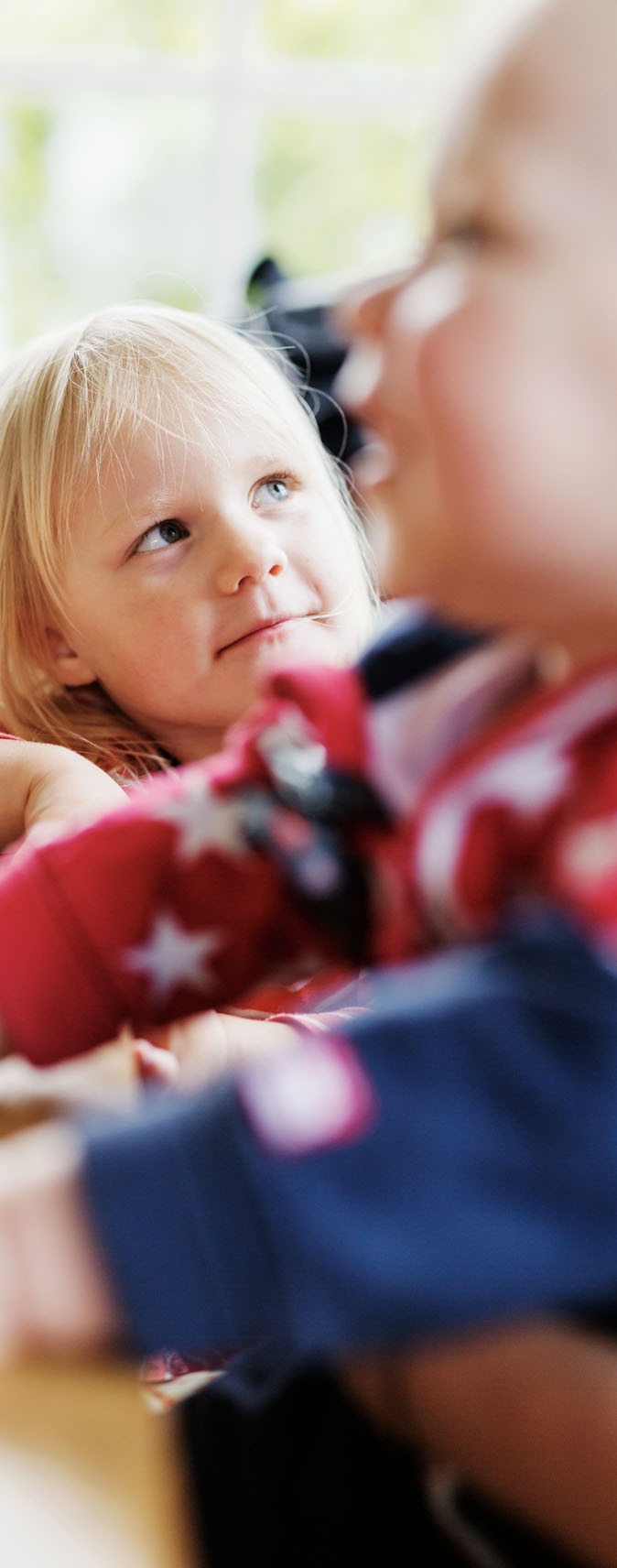Kim Berelowitz, Psychologist
Positive Steps Workshops
Positive Steps Workshops
How To Talk So Kids Will Listen
Johnny’s teacher called you at work today… Mary’s depressed and won’t come out of her room… Bobby insulted your mother… Mark broke the lamp… Ruth’s late again… Russell wet the bed… Jenny told a lie… and the baby’s crying!
Every other occupation, from driving a truck to performing surgery, requires months or years of training. Only for the job of raising children do we expect that love will be enough. But, sometimes it isn’t. Parents also need skills. Here is the program that gives parents the know-how they need to be helpful to their children and helpful to themselves.
What Do The Workshops Teach?
The goal of the How To Talk So Kids Will Listen Group workshop is to help you and the members of your group communicate more effectively with children. In each session of the workshop you’ll be introduced to an additional set of proven skills that will help you to cope with your child’s negative feelings…engage your child’s willing cooperation…discipline without hurting or alienating…help your child develop a positive and realistic self-image…foster a family atmosphere of love and respect.

What Will Be Covered in Each Session?
- Helping Children Deal with Their Feelings – An exploration of what happens to children when their feelings are denied. Specific skills that help children to recognize and cope with their negative feelings: disappointment, envy, frustration, resentment, anger, etc. Ways to accept children’s feelings, limit unacceptable behavior, and still maintain goodwill.
- Engaging Cooperation – How children react to commonly used methods to get them to cooperate: threats, warnings, orders, name calling, sarcasm, lecturing, etc. Five ways to invite cooperation that will leave parents and children feeling good about themselves and each other.
- Alternatives to Punishment – How do children normally react to punishment? Is it necessary to rely on punishment as a means of discipline? Some alternatives to punishment that enable parents to express their strong disapproval as well as encourage children to assume responsibility for their behavior.
- Encouraging Autonomy – Ways to help children become separate, responsible people who can one day function on their own. Specific skills that help children to become more self-reliant.
- Praise – An exploration of the kinds of praise that build a positive and realistic self-image, and the kinds that are counter-productive. A variety of ways to help our children become aware of their strengths so that they can put them into action.
- Freeing Children from Playing Roles – A look at how children are sometimes cast into roles (bully, whiner, dawdler, mischief-maker, etc.) and how we can free them from playing out these roles. Six skills that help children see themselves in a different and more positive light.
- Final Review – “Back-to-life” workshop session; a chance to consolidate what’s been learned by applying all the skills of the previous sessions to current problems with children.
To find out more, or to enrol in the next course, email kim@positivestepspsychology.com.au or call 0452 138 835
POSITIVE STEPS PSYCHOLOGY SERVICES
Positive Steps Psychology Services
Positive Steps Workshops
Peers Adult Course
Young adults with social challenges can become isolated, withdrawn and the target for teasing and bullying. Conversely, having one or two positive friendships can assist with coping with stressful life events, increase self-esteem and wellbeing.
The PEERS® (Program for the Education and Enrichment of Relational Skills) was originally developed by Elizabeth Laugeson to clearly teach strategies to navigate social situations and form relationships with others. It has a strong evidence-base for use with teens and young adults with Autism Spectrum Disorder, ADHD, Anxiety, Depression, and other socioemotional challenges. Recent research has demonstrated that gains made over the course of this program are maintained 3-5 years later (Laugeson et al., 2013).
In the 16-week PEERS® program for young adults, they will learn …
- How to find sources of friends
- How to find common interests by trading information
- How to use appropriate conversational skills including starting and maintaining
conversations - How to enter and exit group conversations
- How to organize and have successful get-togethers
- How to appropriately use humour
- How to handle rejection and direct or indirect bullying
- Rules for forms of electronic communication
- How to handle arguments and disagreements
- Dating etiquette/skills

A key component of the PEERS® program is attendance with a social coach. A social coach can be a parent, family member, adult sibling, life coach, job coach, and/or peer mentor. The same person selected to be the social coach must attend each session. Social coaches assist in homework completion and help with interpersonal problem-solving. Social coaches are an important factor in assisting the young adult’s ability to develop and maintain lasting friendships and ensuring that what is taught in the program is reinforced after the program is over. Social coaches’ groups run simultaneously with young adult groups at the same place and time.
Pre-requisites to enrolment in the program:
- Young adults must have difficulty with friendships
- Young adults must be between the ages 18-30 (graduated high school)
- Young adults must be interested in attending the program
- Young adults must agree to participate in the program
- Young adults must have a consistent social coach willing to attend the program each
week - Participants must be able to successfully learn in a small group environment
- Young adults must be able to speak in sentences
To find out more, or to enrol in the next course, email kim@positivestepspsychology.com.au or call 0452 138 835
POSITIVE STEPS PSYCHOLOGY SERVICES
About Positive Steps Psychology
Positive Steps Workshops
Peers For Teens
Teenagers with social challenges can become isolated, withdrawn and the target for teasing and bullying. Conversely, having one or two positive friendships can assist with coping with stressful life events, increase self-esteem and wellbeing.
The PEERS® (Program for the Education and Enrichment of Relational Skills) was originally developed by Elizabeth Laugeson to clearly teach strategies to navigate social situations and form relationships with others. It has a strong evidence-base for use with teens and young adults with Autism Spectrum Disorder, ADHD, Anxiety, Depression, and other socioemotional challenges. Recent research has demonstrated that gains made over the course of this program are maintained 3-5 years later (Laugeson et al., 2013).
In the 14-week PEERS® program for teens, they will learn …
- Choose appropriate friends.
- Use appropriate conversational skills.
- Find common interests in conversations.
- Enter and exit conversations between peers.
- Be a good host during get togethers.
- Use appropriate humour.
- Use electronic communication.
- Handle rumours and gossip.
- Handle arguments with peers.
- Change a bad reputation.
- Handle teasing and bullying.
- Be a good sport.

A key component of the PEERS® program is parental participation. Research shows that parental support, instruction, and supervision significantly enhances the development of friendships. Parents will learn how to become social coaches, assist in homework completion, provide peer interaction opportunities, and help with interpersonal problem- solving. Parents are an important factor in assisting their child’s ability to develop and maintain lasting friendships and ensuring that what is taught in the program is reinforced after the program is over. Parent groups run simultaneously with teen/young adult groups at the same place and time.
Pre-requisites to enrolment in the program:
- Regular attendance is imperative.
- Parent/Caregiver participation is required.
- Teens must be having struggles with friendship.
- Teens must be between 13 – 18 years old.
- Teens must be interested in attending the program.
- Teens must be emotionally and behaviourally regulated.
- Teens must be able to speak in sentences.
To find out more, or to enrol in the next PEERS® course, email kim@positivestepspsychology.com.au or call 0452 138 835
POSITIVE STEPS PSYCHOLOGY SERVICES
Contact Positive Steps Psychology
Positive Steps Workshops
Siblings Without Rivalry
What Do The Workshops Teach?
The goal of the Siblings Without Rivalry group workshop is to help you to help your children learn how to live together. Each session sensitises parents to what it is that increases hostility between children and the attitude and the language that decreases hostility. During each session, parents will learn and practice specific skills that help to reduce friction and make harmony possible. Participants will also have the opportunity to take a fresh look at their own adult sibling relationships.
What Will Be Covered in Each Session?
- Helping Siblings Deal with Their Feelings About Each Other – What happens to brothers and sisters when their hostile feelings about each other are ignored or denied? Four specific methods for helping children express their negative feelings to each other without doing damage.
- Keeping Children Seperate And Unequal – How siblings react when they are compared to each other – unfavourably or even favourably. Effective alternatives to comparisons. How siblings feel about always being treated equally. Ways to treat children unequally and still be fair.
- Siblings in Roles – Why brothers and sister are often cast, and cast each other, into different roles. A look at how powerfully these roles affect their relationships with each other. Skills that free each child to become his or her most whole self.
- When the Kids Fight – What can you do when fighting breaks out between the children? An exploration of commonly used strategies that backfire. A chance to practice the skills that reduce rage and motivate children to work out their own solutions.
- Problem Solving – A method for helping children deal with the problems they can’t work out for themselves. A simple ten-step approach that enables adults to sit down with the young combatants so that they can move toward resolving their conflicts.
- A Final Review – Time to review and consolidate your skills. Exercises give you practice in applying everything you learned to potentially explosive situations. Finally, an opportunity to take a second look at your own adult sibling relationships from your new perspective.

To find out more, or to enrol in the next course, email kim@positivestepspsychology.com.au or call 0452 138 835
